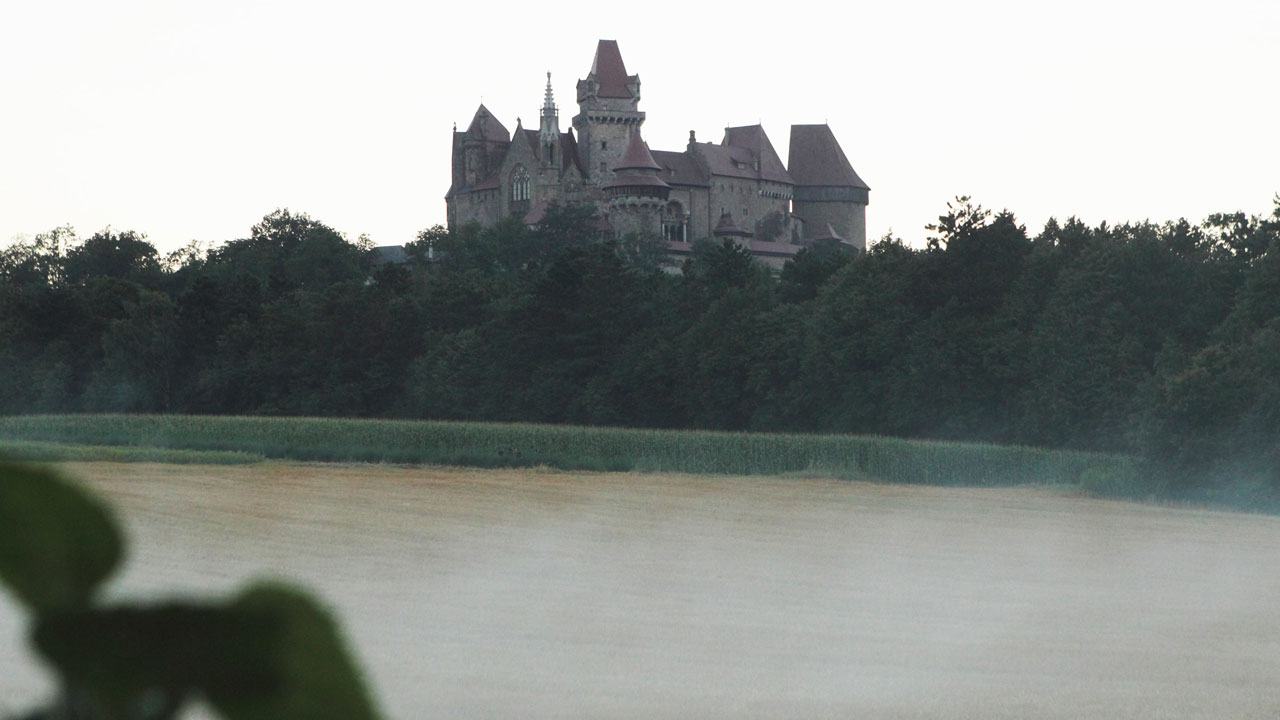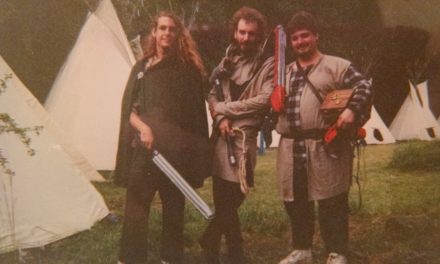My main LARP (live action role playing) character has an extremely high pitched voice.
She’s also into politics in this medieval fantasy environment. While she’s changed a great deal over the years, these two things have remained rather constant.
When you think about most women in politics in a contemporary context, they certainly wouldn’t be described as youthful sounding, high-pitched, girlish, or passive.
When considering my character’s path, I’ve noticed the speech patterns and behaviors of powerful women in world politics.
The Politicians
Above: Former Secretary of State Condoleeza Rice (United States)
Above: Former Secretary of State Hillary Rodham Clinton (United States)
Above: Former Prime Minister Indira Gandhi (India)
Above: Former Prime Minister Margaret Thatcher (United Kingdom)
Former President, Former United Nations High Commissioner for Human Rights Mary Robinson (Republic of Ireland)
One notable exception is German Chancellor Angela Merkel, who speaks with an especially compassionate tone. I find this especially interesting since she hails from a country that has a historically unfortunate and negative reputation when it comes to qualities such as sensitivity. Perhaps it is a deliberate change of face.
Another speech giver worth noting is Malala Yousafzai, Nobel Laureate. Though young and speaking in a second language, her authority at the podium is clear and undeniable. (Malala Yousafzai is from Pakistan.)
Aside from learning that I might consider wearing shiny wrinkle-free pastel clothing, I’ve noticed that these powerful women have several things in common:
- Clear message
- Ability to adapt tone based upon audience
- Precise gestures
- Lack of vocal fry and upspeak
- The power to pause before answering, so long as the answer to a question is thoughtful
I’ve also noticed that speaking in a lower tone is considered calmer, less emotional, and more professional
So what’s a soprano to do? Look to Malala, who is still very young. Each thing she says and does is very deliberate. With moderate success, I have adopted an emphasis on the clarity of what I say when I am portraying my character Ceara.
Since I am doing this analysis for a character I play, I should hardly limit myself to real world politicians and women of authority. Here are some pertinent speeches from characters who influenced the creation of my main LARP character.
The Characters
Gisele from “Enchanted.” As she realizes emotions like anger and love, Gisele retains her high-pitched tone and her sense of self. She never compromises her voice, singing or otherwise, like the other Disney princess Ariel. I’ve been inspired by the way Gisele adapts to her new life while retaining her more genuine qualities. Like my LARP character (who was fae but is now human), Gisele explores love as she takes off the rose-colored glasses and experiences responsibility and reality.
While it was fun to play a character who was so dainty and regal (albeit silly), it’s more fascinating to play a character who goes through the realization that a happily ever after might not happen, even if her love is true.
While it’s obvious how this movie might impact children in a positive way, it’s also crucial to see how it could impact the young twentysomethings groping with how life is versus how it should be. Like Gisele, my character’s world has encouraged her to change a great deal, but she still won’t change her voice in most situations.
Quinn Fabray from “Glee.” When I first started playing my character, I enjoyed projecting a sense of entitlement much like Quinn in earlier seasons of the show. Vocally, Quinn’s big on upspeak and vocal fry, but employs these speech patterns deliberately on many occasions, wishing to appear as anything from innocent to rebellious to seductive. As the player of a bard, I find this most intriguing.
Jane Foster from “Thor.” MCU Jane doesn’t get a lot of love from Marvel fans, but she’s one of my very favorite characters. In some scenes, she is clear and forceful with her language, but in this tender, personal scene, she laughs in a traditionally feminine way and you hear a lot of vocal fry. While this could be easy to criticize, both characters are showing each other vulnerabilities here, and Thor is still admiring her for her scientific pursuits and ideas. She can be giggly, awkward, and really smart.
Like Jane, my character relies heavily on being genuine. Also like Jane, she’s seen as an outsider, usually to her disadvantage. When someone accepts and connects with her, my character feels they deserve nothing less than the truth of who she is.
Lucretia from “Spartacus.” This character is wise and calculating, and her patrician tone reflects it. When I think of a political character able to work with the confines of society, Lucretia is a primary example. “Proper is a word forged by men who would seek to enslave us with it,” she says – but she does not say so resentfully. Instead, she seeks to operate within those boundaries set, most of the time.
From playful and inviting to serious and intense, Lucretia emphasizes clarity and meaning in her words as the domina of her household. She seldom gives long speeches: instead, her quips have brevity underscored by her tone. When it comes to portraying my LARP character, this has been a constant challenge (but a goal) to master.
In “First Knight,” Guinevere consents to marry Arthur for the security of her people and to fulfill a wish made by her father. Although she is portrayed as an independent spirit, the patriarchal society in which she lives makes many choices for her.
When she first arrives at Camelot (not shown), Guinevere proves her leadership qualities when she provides a message to send home to Lyonesse. The speech is prepared and her tone even.
In the above clip, she is caught by surprise as Arthur invites an enemy to court. Malagant has devastated Lyonesse and Guinevere is clearly terrified and traumatized by his appearance. Arthur, however, leaves the decisions about Lyonesse within her control. When she says “I’ll never sign it,” standing well above Malagant on the dais, Guinevere musters significant authority.
I’ve left this example for last because it demonstrates the crux of many female characters and their voices – having gone from girl to woman, protected to protector. In societies where so much power comes from the status of being protected (along with many limitations), voice is one way that can signify a transition.
Ubiquity Through Bravery
Most of the politicians and characters above have obtained a strong sense of identity (and personal brand) by being unconventionally brave. You can see this in any Jane Austen novel, but when it comes to a character you play one weekend in a month (if you’re lucky enough to attend a game that runs that often) in a setting filled with heroes, how do you distinguish yourself?
You can do with your voice what society may need (and simultaneously reject: take on a role unfulfilled. It’s not just about what it’s said, but how. At my home LARP, there are many bards, and while my character is respected in this way, she’s had to share the role with many others. In her setting, my character takes on the role of a troibairitz often performing in the canso style. Just as the character grows in her skills and abilities, she has come to occupy a rather specific socio-political role allowing her to project undeniable loyalty (and unrequited love) for her beloved king.
As a bard – and with this voice, sometimes lyrical and often girlish – she has found a way to develop unquestionable loyalty to one of the most powerful people in the game while retaining the sincerity and innocence of her past self, a former fae.
I’ve thought a great deal about her voice through this transition. When I asked others why the character wasn’t respected, many said it was due to her voice. Seeking respect (with the excellent side effect of political advancement) without changing that quality was a frustrating, fun, and fulfilling challenge.
When you’re LARPing, what tone do you use? Do people respect it? I look forward to reading your observations in the comments.

![LARP: The Voice of the Female Character [Videos]](https://geekinitiative.com/wp-content/uploads/2015/08/Screen-shot-2015-08-01-at-2.14.10-PM.png)



